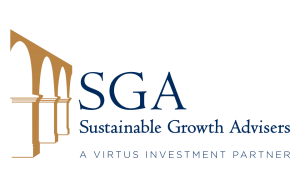SGA Global Growth SMA
SGA Global Growth SMA

Resources
Investment Objective
- To generate long-term capital appreciation by investing in companies in developed and emerging markets across market capitalizations
- To identify industry-leading businesses positioned for attractive long-term revenue and earnings growth, with sustainable competitive advantages and visionary management teams
Investment Philosophy
We strive to generate excellent absolute and relative returns over time by using a fundamental, bottom-up process to identify businesses that we believe offer predictable, sustainable growth and have the ability to generate meaningful wealth.
Investment Partner
Sustainable Growth Advisers, LP
Founded in 2003, Sustainable Growth Advisers is a growth equity manager focused on high-conviction U.S., global, emerging markets, and international large-cap portfolios.
Learn more about Sustainable Growth Advisers, LP
Investment Professionals

Hrishikesh (HK) Gupta
Portfolio Manager and Analyst
Industry start date: 2009
Start date as fund Portfolio Manager: 2011

Kishore Rao
Portfolio Manager and Analyst
Industry start date: 1997
Start date as fund Portfolio Manager: 2011

Robert L. Rohn
Co-Founding Principal
Industry start date: 1983
Start date as fund Portfolio Manager: 2011
